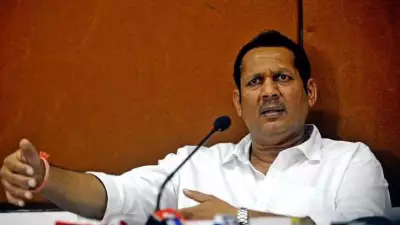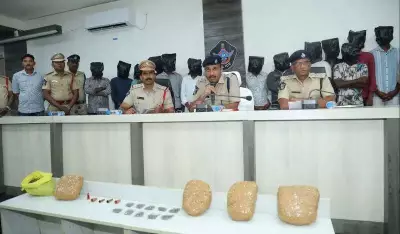
With the crucial Brihanmumbai Municipal Corporation elections scheduled for December 2, Maharashtra's political landscape is witnessing significant tremors as both ruling and opposition alliances show signs of strain. The upcoming local body polls have exposed underlying tensions that could potentially redefine power equations in India's financial capital.
Coalition Cracks Surface in Ruling and Opposition Camps
The ruling Mahayuti alliance faces internal discord as Shiv Sena ministers led by Eknath Shinde boycotted a cabinet meeting, openly accusing their coalition partner BJP of poaching their members. This public display of dissatisfaction reveals the fragile nature of the alliance just weeks before the critical BMC elections.
Meanwhile, the opposition Maha Vikas Aghadi faces its own challenges as Congress has declared its intention to contest the elections independently. The party cited reservations about partnering with Maharashtra Navnirman Sena as a key reason for this decision. This development comes amid growing closeness between Shiv Sena (UBT) and MNS on issues concerning Marathi language and the "Marathi manoos."
Why Coalition Politics Faces Challenges in Local Elections
The fragility of coalition politics in Maharashtra's local elections stems from several key factors. Local government elections are typically closely contested, giving smaller parties considerable influence and presence. Building effective coalitions and mobilizing locally dominant parties becomes crucial for success in such scenarios.
Another significant factor is the BJP's continued dominance at the national level. Despite poor performance in Maharashtra during the 2024 Lok Sabha elections, the party emerged as the single largest party nationally for the third consecutive time. Later the same year, it repeated this performance in state assembly elections, demonstrating its resilience.
The BJP now sets its sights on the BMC, where Shiv Sena has maintained control for over two decades. However, in the current political scenario, Shiv Sena (Shinde) faces multiple challenges including its subordinate position within the coalition and reported internal dissent that could impact its electoral performance.
Legacy Battle and Political Realignments
For Uddhav Thackeray's Shiv Sena (UBT), the BMC election represents more than just a political contest—it's a battle for the party's legacy and identity. The struggle is particularly poignant as Thackeray attempts to reclaim his father Bal Thackeray's political glory that was first established through BMC elections.
In what appears to be a strategic move to restore his family's political primacy, Uddhav Thackeray is aligning with his estranged cousin Raj Thackeray and invoking Marathi pride. This realignment, coupled with indications that Sharad Pawar's NCP might also contest independently, has significantly damaged the perceived unity of the Maha Vikas Aghadi alliance.
The ongoing political maneuvers suggest that Maharashtra's local body elections could fundamentally restructure state politics. The contest is increasingly shaping up as a battle between the BJP and various regional parties attempting to either retain or reinvent their political positions.
Political observers note that while poaching concerns and alliance uncertainties create challenges for both camps, the BJP's dominant role and proven ability to manage coalition crises might give Mahayuti an advantage. However, the deeper crisis within Maha Vikas Aghadi presents a more complex scenario that could have lasting implications beyond the December 2 elections.





